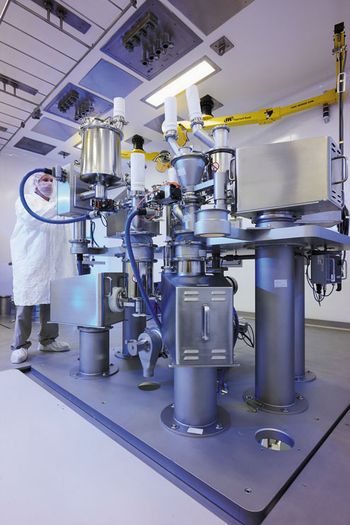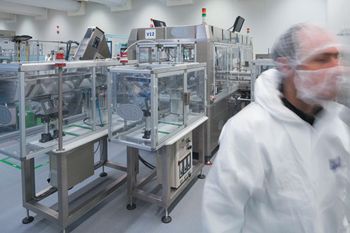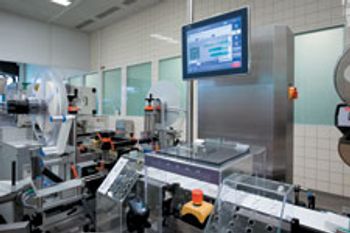
The acquisition broadens the CDMO’s preclinical and clinical offering to include bioanalytical and drug discovery services.

The acquisition broadens the CDMO’s preclinical and clinical offering to include bioanalytical and drug discovery services.

Additional reactor capacity and a wastewater processing plant increase API manufacturing capacity at the Cambrex site in Kalskoga, Sweden.

ADC Bio announces plans to expand into clinical and commercial drug manufacturing for ADCs.

Ajinomoto Althea opens manufacturing suites in new high potency and antibody drug conjugate commercial facility.

The acquisition adds to Catalent’s capabilities in biologics development, analytical services, manufacturing, and finished product supply.

Matching the production requirements of a bio/pharma company with the manufacturing capabilities of a CMO is a delicate balance, requiring attitude shifts on both sides of the table.

Forced degradation studies can identify stability problems for drug substance and drug products.

Innovation speeds discovery, drives down costs, and improves productivity.

Regulatory outsourcing can result in improved compliance, greater transparency, higher productivity, increased cost-effectiveness, and desired strategic outcomes.

CDMO Micro-Sphere is investing CHF 21 million (approximately $21.63 million) into the expansion of its GMP manufacturing capabilities at its Swiss facility.

Regenerative thermal oxidation (RTO) has become a common solution to treat volatile organic compounds (VOC) and hazardous air pollutants (HAP) present in the emissions of many pharma production processes. Regenerative thermal oxidation devices used to treat halocarbons should be designed to prevent corrosion. Anguil Environmental Systems explains best practices for addressing potential fail points in the materials of construction when designing process emission handling systems.

Cambrex is investing $24 Million in new, highly potent API manufacturing capacity at its Charles City, Iowa site.

Despite some progress, the industry is still in a wait-and-see mode regarding the administration, Congress, and FDA.

Amid contentious debate about “fake news,” peer-review papers offer vital, objective insight.

The merger enhances STA’s end-to-end capabilities as a full-service contract development and manufacturing organization.

CMOs must embrace flexibility in their technology decisions and business arrangements.

Research suggests that on-site audits are becoming less meaningful because suppliers are less willing to devote time to them.

Requirements for early- and late-stage trial manufacturing may differ, but complying with good practices, maintaining blind studies, and considering logistics remain crucial at all times.

Eric Jayjock, Patheon’s director of continuous manufacturing, discusses the CDMO’s plans for its new continuous manufacturing business.

Successful development requires coordinating and aligning drug and device design, focusing on a complete drug delivery system that meets patients’ needs.

TraceLink’s Graham Clark, director of contract supplier relationships and cofounder, and Brian Daleiden, vice-president of industry marketing, shared insights into industry’s serialization readiness as well as recent trends and developments with Pharmaceutical Technology.

Advanced digital ledger technologies offer potential solutions, but are still several years away from practical use.

The contract development and manufacturing organization (CDMO) Aesica Pharmaceuticals has had a serialization program in place for the past five years, and recently installed capabilities for serialization at all its packaging facilities.

Elevating the project management function can improve transparency and enable companies to react faster to internal and external change.

Catalent Applied Drug Delivery Institute announced a partnership with Rutgers University to examine the challenges of pediatric drug formulation and delivery.